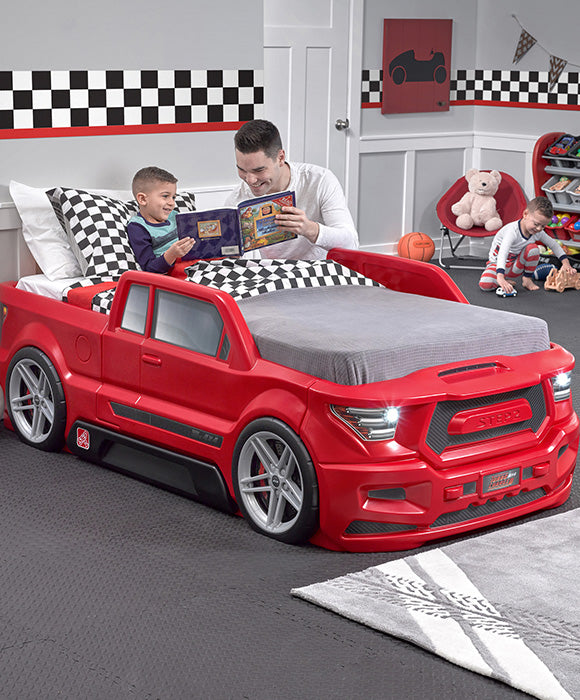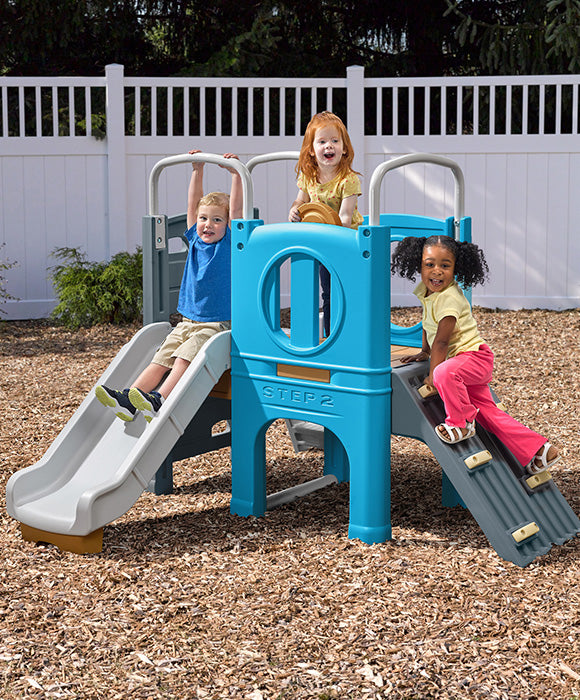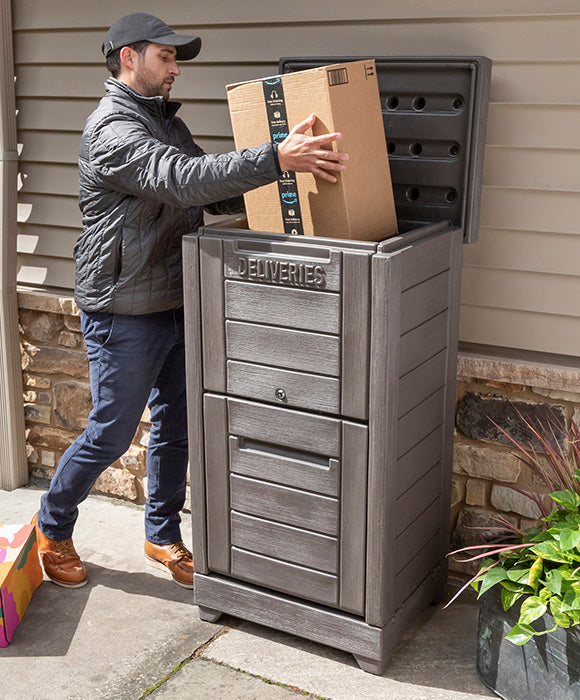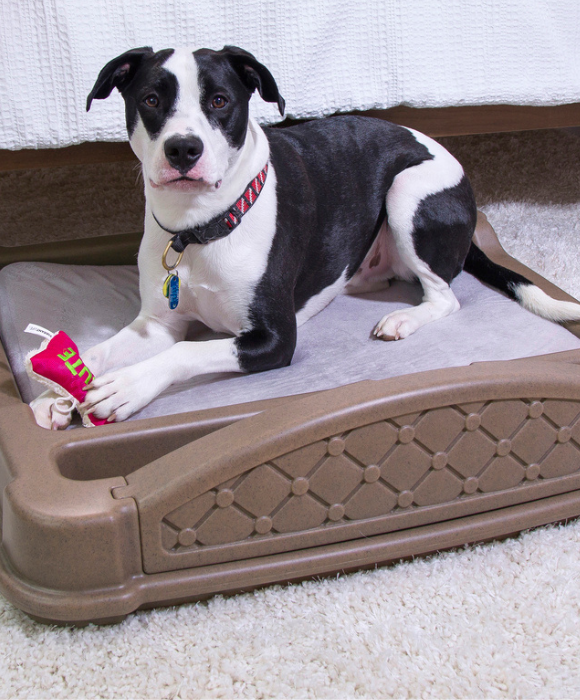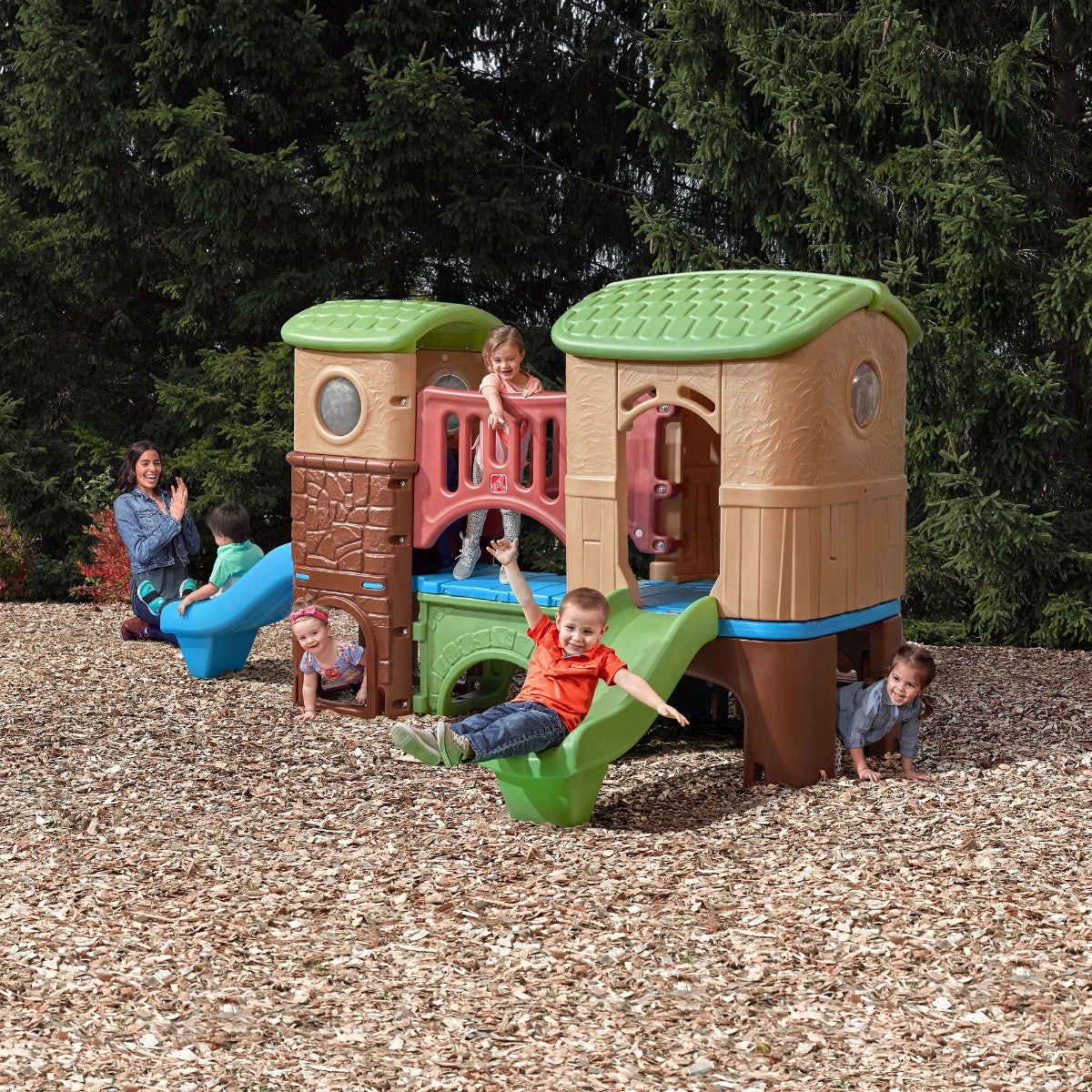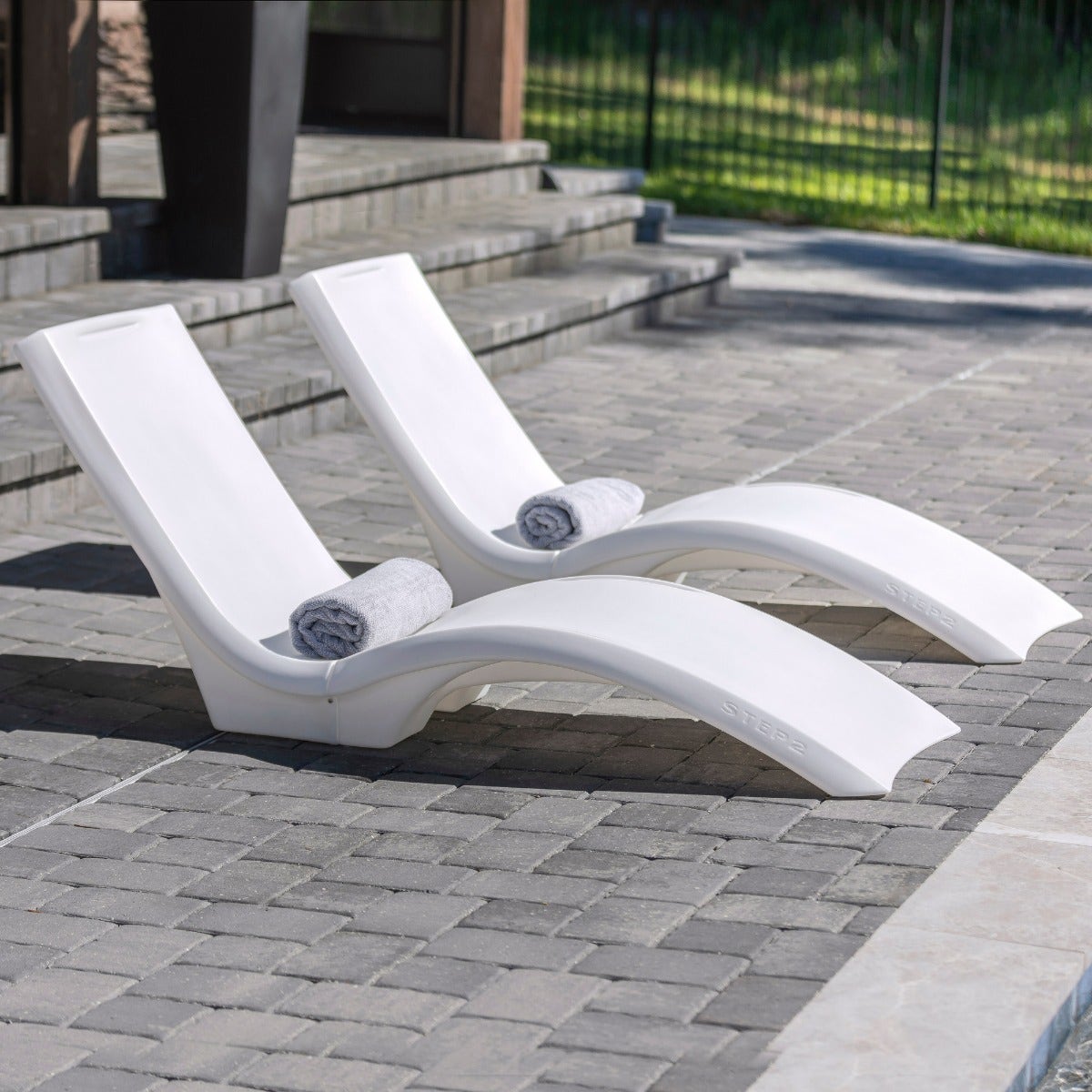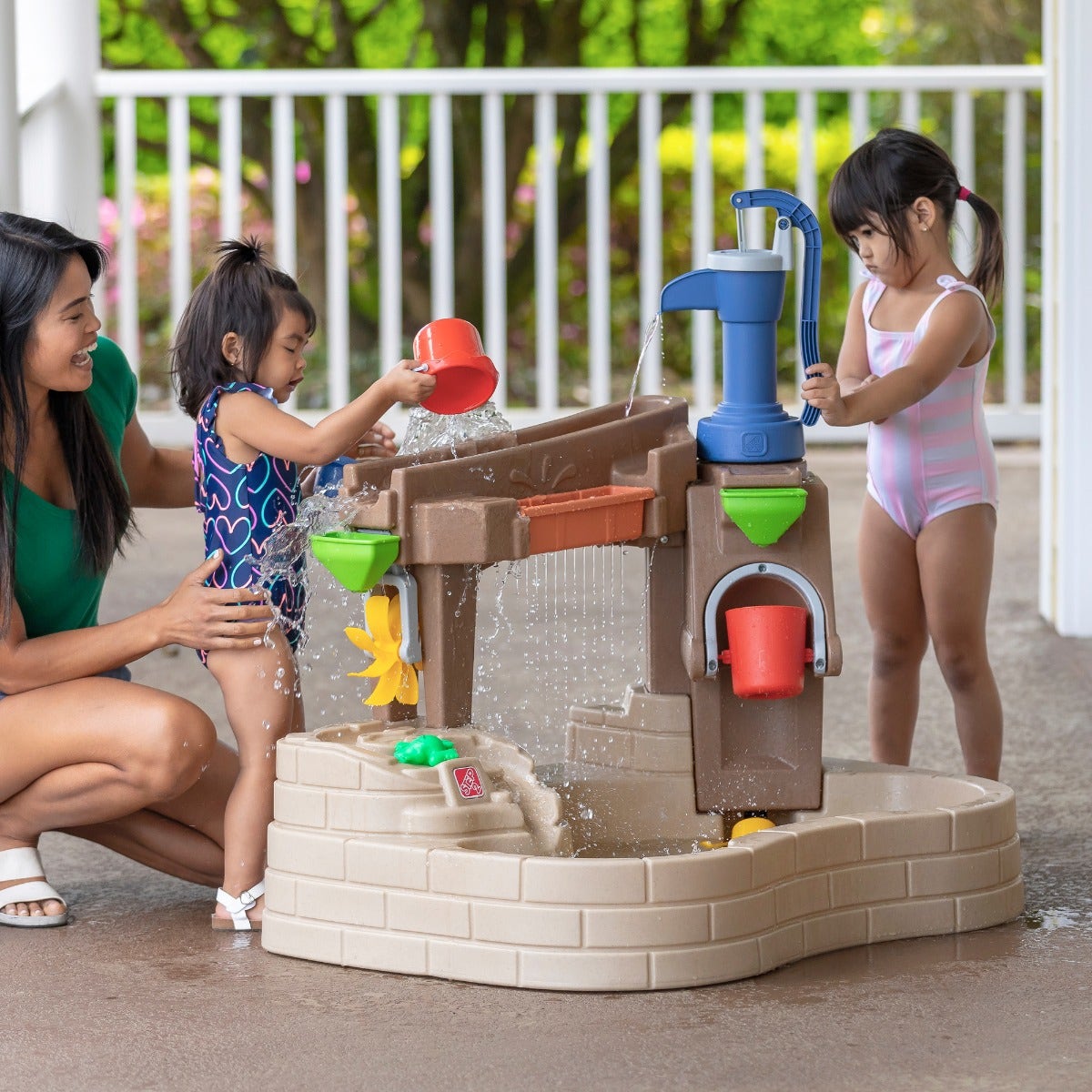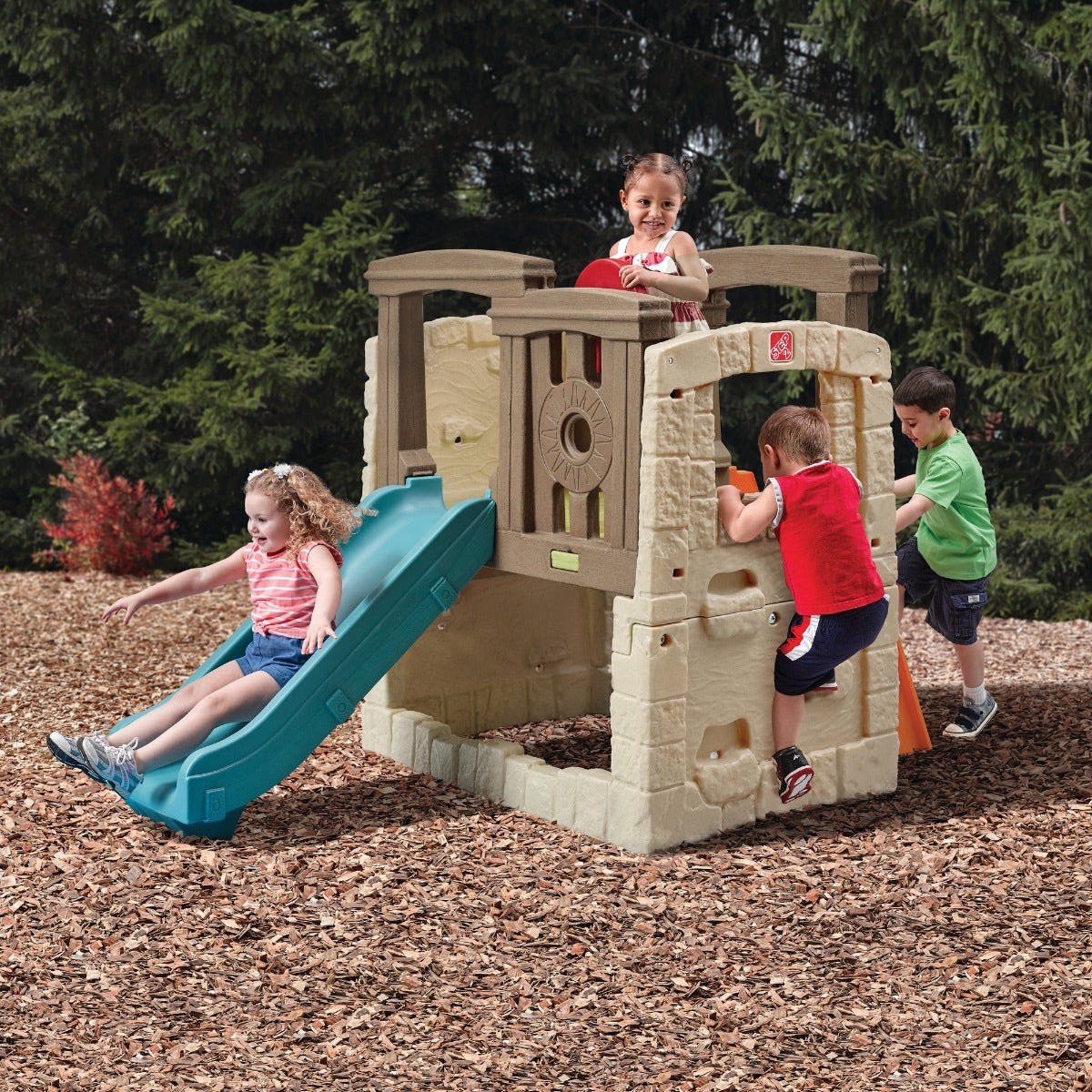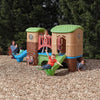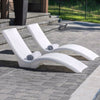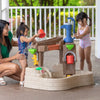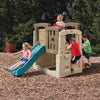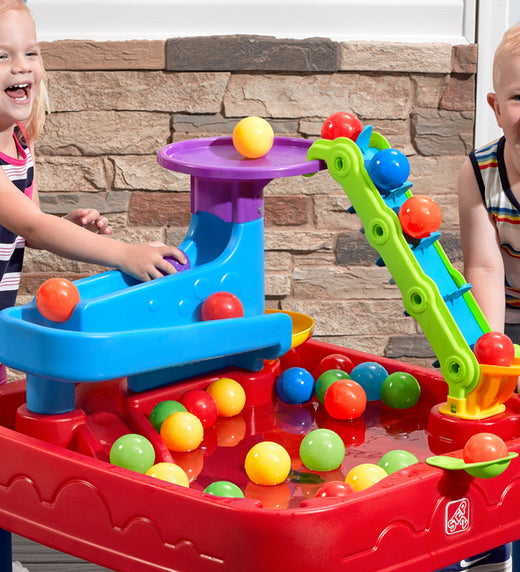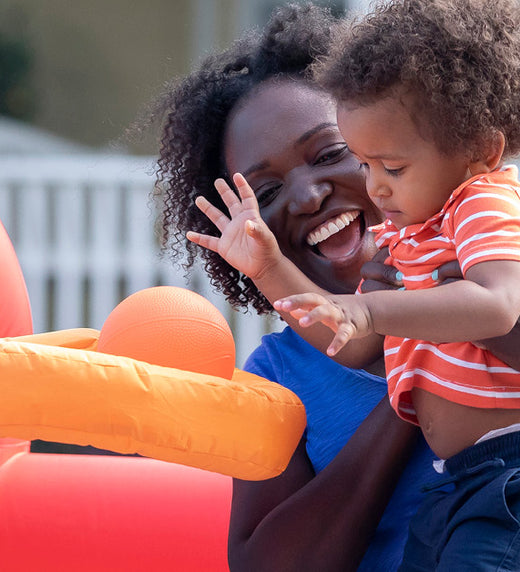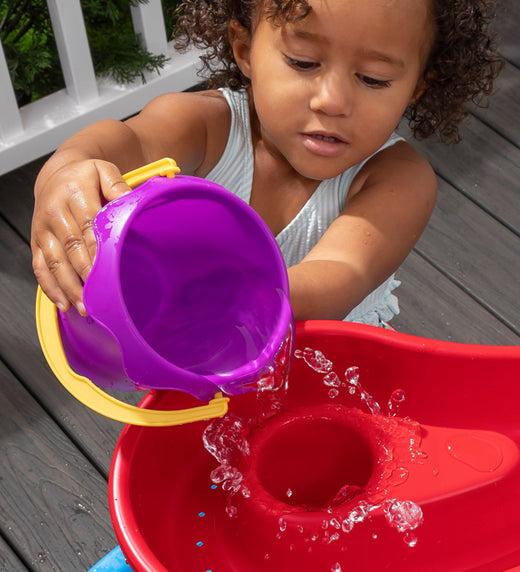The Importance of Play for Brain Development
Between the ages of 0 to 8 years, your child’s brain grows a tremendous amount – likely more than any other time in life. Children are like sponges and are constantly absorbing the world around them. Often, without even realizing it, children are investigating, exploring, and creating scientific experiments all in their own heads! As parents and caregivers, we have so much that we can offer our children to make this learning experience even better to aid in brain development.
While there is still so much to learn and research about the effect of play on a child’s brain growth, let me share some of what is known and talk about how we can use this information to provide our kids with the best environments for learning and brain development.
Structured & Free Play – Two Main Types of Play for Toddler Brain Development
Before moving forward, let’s quickly review the two main categories of play. First is unstructured or free play. This is the type of play where kids are fully in charge and play however they like – so long as it is safe, of course! Guided or structured play, on the other hand, is play that is guided by the adults providing the scaffolding for the play experience. This type of play is much more intentional and there is a specific learning goal involved. For example, the caregiver may set up a finger-painting station and put out the primary paint colors of red, yellow, and blue. As the child swirls around the paint on the paper, the caregiver could ask, “What do you think would happen if we mixed a little of the blue and yellow paint together?”, or “Wow, you made orange paint! Red and yellow make orange!”
Play is like school for toddlers and young children and so much of early education can be taught through guided play. It is important that we provide our children with ample opportunity to engage in play. Unlike many of the different ways people learn throughout life, play is both fun and self-motivating. Wouldn’t you rather get messy and play with paint instead of sitting in a chair and memorizing how different color combinations are created?
I am often asked, “Why does my child do the same thing over and over again?”. The answer? Skill mastery. Repetition is essential – just as we have to practice writing letters over and over again when we are learning how to write our name, other learning takes place in a similar way. For example, when your child is playing in the bathtub and repeats filling up the bucket and dumping it out over and over again, she is giving her brain the chance to understand the concept of gravity and dynamics, and the physics of water flow. Not only is this activity fun, but her brain is growing too! Time to pull out your favorite Step2 Water Table or new Nautical Rain Showers Bath Set™ and have some water fun with your child!
Children are learning while having fun. Guided play provides children with meaningful and immediate feedback from adults. This type of feedback and integration of learning into play activities helps to cement these learning points into your child’s brain. Studies have shown that children demonstrate improved recall of vocabulary words when the words are reinforced during play rather than on flashcards. We know that pleasurable experiences lead to increased production of certain “happy hormones” in the brain and these experiences can aid in the formation of novel neural connections in the brain. Isn’t play amazing!?
More Types of Play to Support Brain Development in Children
Engaging in divergent play is another way that play can aid with brain development in children. Divergent play is the type of play that has multiple different outcomes. Think putting together a puzzle versus building a tower with blocks. Puzzles have one outcome while a block tower can take on an infinite number of outcomes. Certainly, puzzles have their own advantages but critically thinking through the engineering of a tower reinforces a different type of problem-solving. In fact, some research studies have shown that children who partake in divergent play have better problem-solving skills and often provide more creative solutions. Step2’s Big Builders Playhouse Tables & More™ 132 Piece Building Set is the ideal toy for this type of play. Creativity comes to life and your children use their creative problem-solving skills to engineer an endless number of structures and hours of brain-building fun!
Another type of play that can be particularly beneficial for a child’s brain growth is sociodramatic, or pretend play. This is the type of play where children imagine and act out storylines. For example, your child may bring all of his dinosaurs to the playhouse and pretend that he has been transported back in time and is living in a dinosaur jungle. When children engage in this type of play together they are actively learning social cues and navigating interpersonal dynamics, practicing their language skills, and even improving their ability to self-regulate by taking another child’s ideas into consideration during the play session.
The Takeaway for Baby and Toddler Brain Development
Watching our children grow and develop new and exciting skills right before our eyes is one of the greatest joys of parenthood. Feel good about allowing your child to have hours upon hours of play! Be sure to mix some structured, guided play into the day’s activities and you can guarantee successful brain development, not to mention some good quality time with your child.
Dr. Keili Mistovich, MD, MPH, is a mom, pediatrician, and fierce advocate for children. She earned a Doctor of Medicine degree and Masters of Public Health from the University of Pittsburgh School of Medicine. Dr. Keili graduated from the Pediatric Residency Program at UPMC Children’s Hospital of Pittsburgh and was on the clinical faculty at Pitt. She also cared for children at the nationally renowned Cleveland Clinic and University Hospitals Rainbow Babies and Children’s Hospital. Dr. Keili is now a co-founder of Greater Cleveland Pediatrics, a new practice with a unique and personalized approach to patient care for all families.
